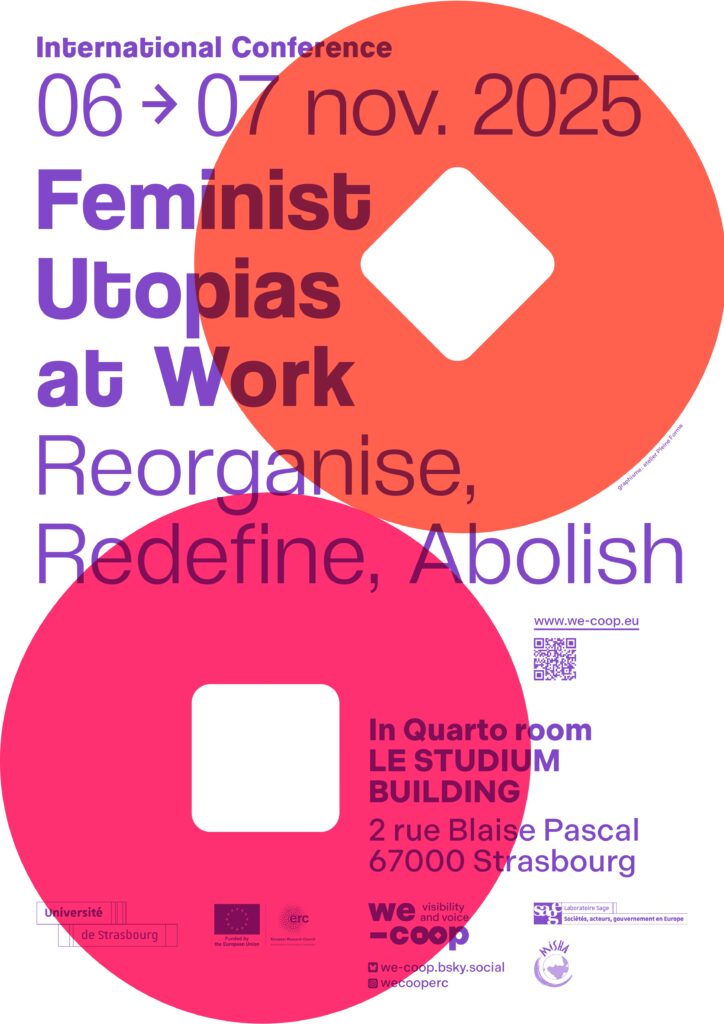Presentation

Feminist Utopias at Work
Reorganise, Redefine, Abolish
Thursday 6 and Friday 7 November 2025, 8:30 a.m.-6:00 p.m.
University of Strasbourg
In Quarto Room, Le Studium building
2 rue Blaise Pascal — Strasbourg, France
Directions
FREE ADMISSION AND OPEN TO ALL
In English and French, with simultaneous subtitles
The round table and the keynote were recorded !
> https://www.canalc2.tv/video/17034
Keynote Speaker:
Jessica Gordon-Nembhard, Professor of Community Justice and Social Economic Development, Department of Africana Studies, John Jay College, CUNY
Author of Collective Courage: A History of African American Cooperative Economic Thought and Practice (Philadelphia: Pennsylvania University Press, 2014).
Guest Speakers Round Table:
Katia GENEL, Professeure de philosophie, Sophiapol, Université Paris Nanterre
Maud SIMONET, Directrice de recherche en sociologie au CNRS, Laboratoire IDHE.S Nanterre
Summary of the Conference:
Although feminist utopias have been the object of an important body of work especially in the literary field, the specific paradigm of labour within these experiments and imaginaries has received only limited attention.
The purpose of this conference is to explore to what extent and in what ways labour (both as a site of oppression and emancipation) serves as a paradigm in feminist utopia-building.
Utopias in the sphere of labour and their political content, which has sedimented in critical theory on work, are imprinted by the Western patrimony of utopian socialism. Although there has been radical, short-lived and often forgotten feminist influences as well as a matrimony now being highlighted, political constructions of “what labour could become” remain shaped by figures such as Fourier, Owen or Saint-Simon.
Feminist critiques have challenged androcentric definitions of labour, broadening the field to include alternative theoretical frameworks. Despite these critical claims, the historical development of capitalism – with its persistently gendered and racialised division of labour – can be considered as dystopian – a “bad place” – that has led some feminist thinkers to reject the idea of equality in such a context.
The conference will use utopia for its central function: “confronting the problem of power” through sidelining and introducing “a sense of doubt that shatters the obvious” (Ricoeur). While we firmly acknowledge the need for utopia in critical thinking, we also underline the importance of multiple approaches to emancipatory politics as a compass for utopia-building. As a result, we will accept understandings of utopia both as a reflexive tool for critique and as a heuristic tool for transformation.
Three complementary approaches to utopia-building will be considered: 1. Reorganise labour ; 2. Redefine labour ; 3. Abolish labour
Publication:
We are planning to publish the most relevant and developed papers as an open-access book on the theme of “Feminist Utopias at Work” with a renowned publisher.